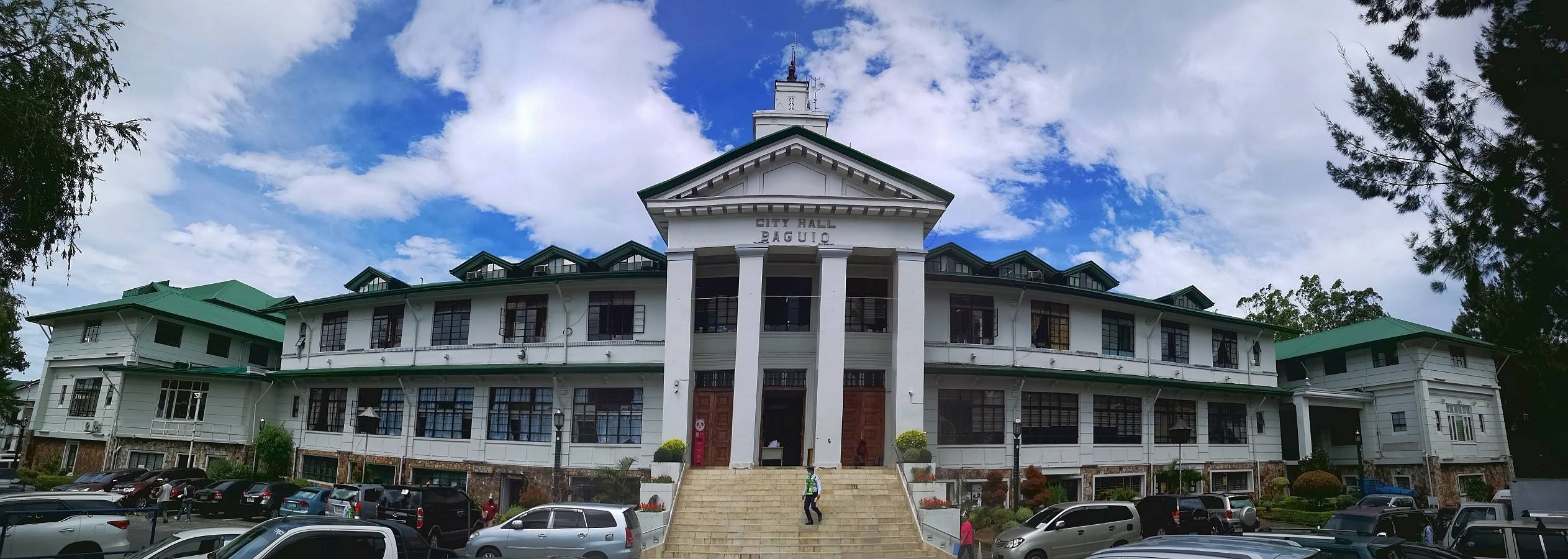
SEAT OF POWER Officials of Baguio City, housed in this building shown in this 2020 photo, approve their biggest annual appropriation at P3.682 billion for 2025. —EV ESPIRITU
BAGUIO CITY—Mayor Benjamin Magalong has signed into law the summer capital’s largest spending ordinance yet, which would grant Baguio an unprecedented P3.682-billion budget for 2025.
Magalong on Monday said he cleared next year’s budget last week and has forwarded the ordinance to the Department of Budget and Management for review, as Baguio proceeds with high-profile programs that would redevelop this historic mountain city. Next year’s allocation is up 9 percent from this year’s P2.745-billion purse.
However, the city’s local expenditure program (LEP) does not have major adjustments to Baguio’s average income, reflecting an anticipated P1.185-billion revenue from local taxes and other public enterprises like rentals collected by the Baguio Convention and Creative Center.
READ: Magalong trumpets Baguio’s economic, social gains
According to the LEP, the city will be receiving P1.665 billion in “external sources,” such as its P1.462-billion share from the national tax allotment (or the expanded internal revenue allotment) and its share of about P200 million from Philippine Economic Zone Authority operations as host to the 45-year-old Baguio City Economic Zone.
The city’s economy is steady, Magalong said, citing its 2023 gross domestic product of 9 percent (P169.12 billion) from its P155.11-billion growth in 2022 despite a much higher rate of 11.4 percent.
But like the rest of the country, Baguio has been reeling from a renewed hike in inflation which climbed to 2.8 percent in November from 1.6 percent in October after benefiting from a steady inflationary slowdown from July to September.
The escalation was fueled by the high prices of food, like vegetables (-10.5 percent in November from -21.9 percent in October) and rice (6.6 percent in November from 5.3 percent in October), expensive rent (4.3 percent in November from 2.5 percent in October) and electricity (18.5 percent in November from 11 percent in October), and high transport costs after gasoline inflation rose to -8.3 percent in November from -11.4 percent in October.
Fewer visitors
Magalong said he also observed a slowdown in tourism in the Yuletide weeks, which is the start of the peak tourist season here, although the mayor could not provide data until booking numbers from hotels, inns and bed and breakfast facilities are collated. Last year, the city drew 1.31 million guests, driven by “revenge tourism.”
But traffic jams still worsened in the last weekends of December, he said—mostly on streets leading to and from the central business district and access points to frequent tourist haunts like Mines View Park and the horse-riding zones at Wright Park.
Magalong said Baguio is pushing for a smart urban mobility system where the movement of mass transportation like traditional public utility jeeps, modern small buses, and taxis is tracked and regulated.
When the budget measure was passed by the city council on Dec. 2, it revived discussions about the revised charter of Baguio, which now requires the city to transmit all its proposed measures to the Benguet Provincial Board despite it being politically independent from the province.
Republic Act No. 11689 (the revised Charter of the City of Baguio), which lapsed into law on April 11, 2022, requires the council to “forward copies of resolutions and duly approved ordinances” to the Benguet Capitol for confirmation.
Vice Mayor Faustino Olowan had criticized RA 11689 last year for its “gross errors,” including this bureaucratic requirement, because it effectively downgraded Baguio’s status from a highly urbanized city to a component city of Benguet.
Outgoing Baguio Rep. Marquez Go had acknowledged “this oversight” and has sponsored a corrective measure, House Bill No. 7406, which would remove this passage in Section 23, Article 8 of the law, said Councilor Betty Lourdes Tabanda. Sen. JV Ejercito, chair of the Committee on Local Government, also filed a Senate bill to cure the law’s errors while the House had passed House Resolution No. 214 on July 24, 2023, to express “the apparent inapplicability” of the section to RA 11689, Tabanda said.
Until amendments are passed, however, the error remains enforceable. To make a point, Councilor Arthur Allad-iw sponsored a resolution directing the budget ordinance to be transmitted to Benguet. He later withdrew the measure and proposed instead to, among others, meet with Benguet officials to address this “most ridiculous provision.” INQ